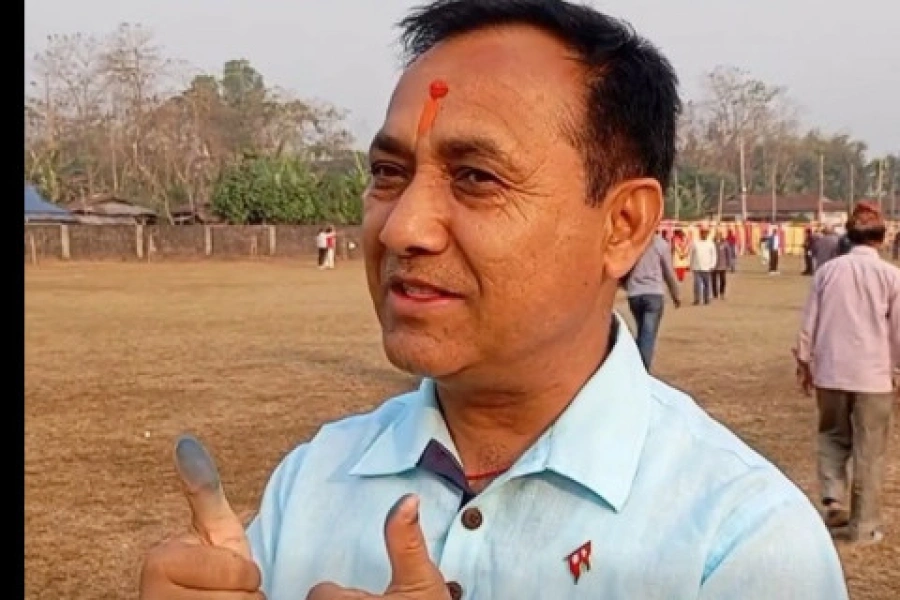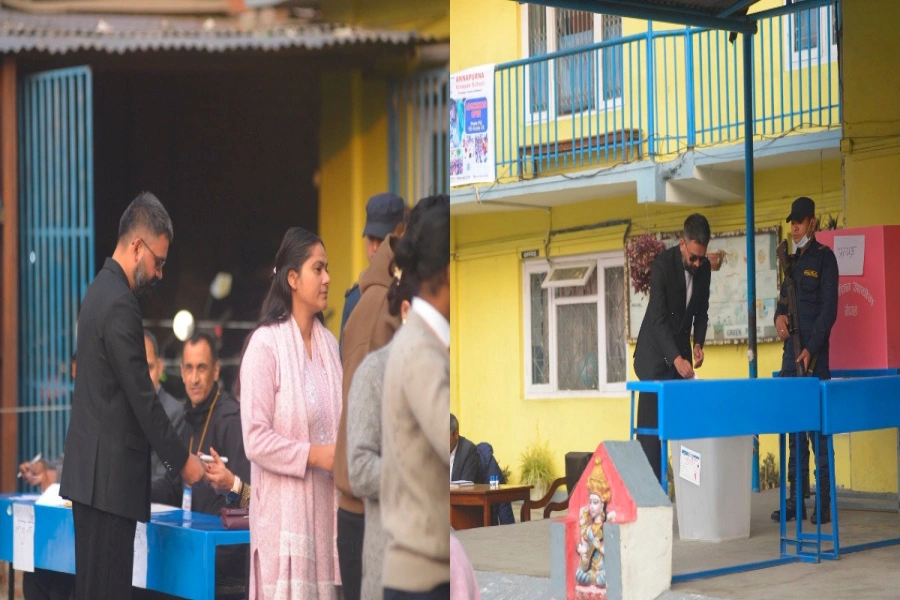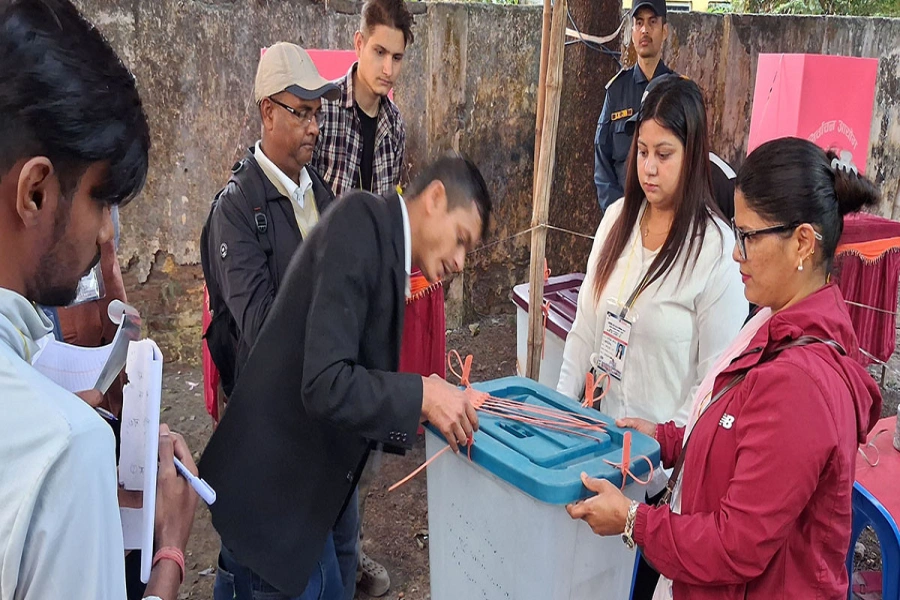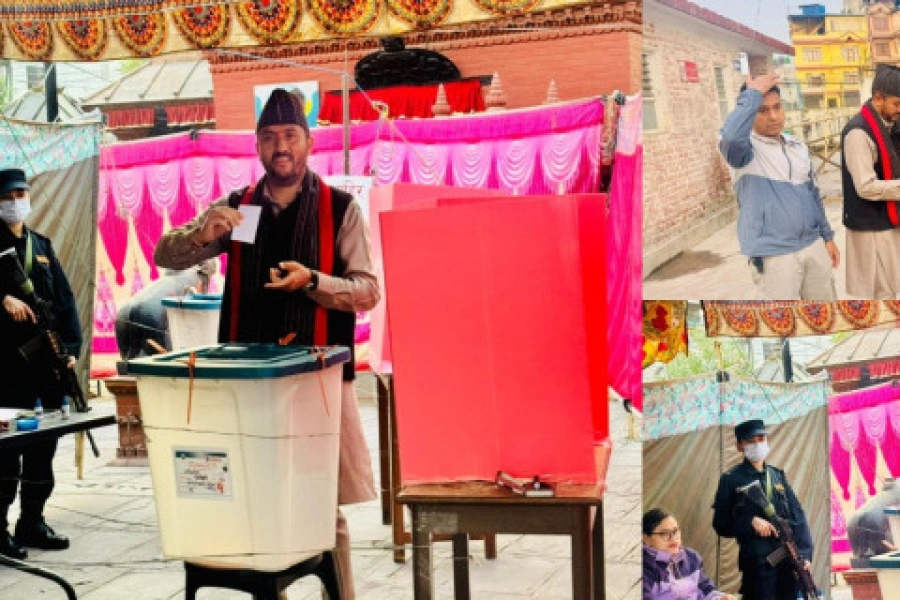Head constable of Nepal Police Durga Bahadur Rana, 38, displayed unparalleled courage to save the lives of voters during a bomb attack at the second phase of the local polls at Ambas poll station in Tulsipur-3, Dang. When an unidentified group threw a bomb inside the poll station in the morning of the election, it dropped just a meter away from where the police were stationed. It was Rana who picked up the bomb and threw it away from the crowded area.
“The bomb was smoldering and I had no choice other than to throw it away,” said Rana during a recent chat with The Week. Rana threw the bomb back in the same direction it had come from and it went off within a few seconds of him tossing it away. Durga is the name of the Hindu Goddess people worship for power and courage, and Rana’s actions matched the meaning of his name.
'Daring Debates' held for the first time in Nepal among college...

The people who were standing in queue to vote only came to know about the bomb when it went off, away from them, in a bush near the police station. Rana’s quick thinking and bravery saved many people’s lives, including his own. This incident didn’t go unnoticed and the news soon went viral. “It’s been a while since the incident but I still receive calls from people both in and out of the country. Their kind words motivate me and make me want to perform better,” he said.
On the day of the incident, the head constable got congratulatory calls from the chief of Nepal Police and the Home Minister Janardan Sharma as well. He also received calls and praises from his seniors, family members, relatives, and even strangers. However, the Nepal Police awarded him with just Rs 1,500. This was met with a lot of criticism especially from the public who believed that this amount was a mockery of the brave act. According to the police regulation, the maximum amount that can be awarded for good deeds is Rs 2,000. Post the outcry, the home minister invited him to the ministry and assured him of duly honoring his laudable work.
SLC graduate Rana had joined the police force in 2003 during the height of Maoist insurgency. Most of his family members and relatives back in Salyan have military backgrounds. He was promoted to head constable 13 years after joining the force, and Rana was deployed for the polls from Kathmandu to the home district of police chief Prakash Aryal just seven days prior to the elections.
Having also been deployed in places of major protests and movements in Kathmandu even after the insurgency ended, Rana feels he knows how to handle himself during tense situations. However, he also mentions that he thanks his lucky stars to have survived the People’s War. “I didn’t need to engage in major clashes with protesters during the people’s movement. It’s a lot to be thankful for,” said the brave one.
(As told to Ashok Dahal)











_20200211065424.jpg)



-1200x560-1772642762.webp)





















